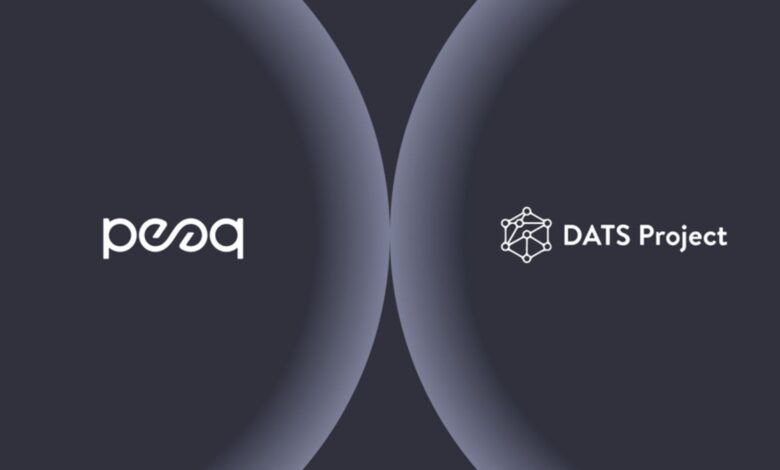DATS Project to Leverage Peaq L1 to Decentralize Cybersecurity

As the cybersecurity market is projected to hit a staggering $424 billion by 2030, the rise of connected devices is driving an urgent need for more robust security solutions in both business and personal arenas. Traditional centralized cybersecurity services, despite their widespread use, often fall short against the sophisticated computational power leveraged by modern hackers, coupled with a lack of transparency that leaves many companies and individuals vulnerable.
In response to these challenges, DATS Project is pioneering a new decentralized approach by harnessing the power of blockchain technology. Teaming up with peaq, a prominent layer-1 blockchain specifically tailored for Decentralized Physical Infrastructure Networks (DePIN) and the management of Machine Real-World Assets (RWAs), DATS Project aims to decentralize and enhance cybersecurity measures across the board.
This collaboration marks a significant shift towards a decentralized cybersecurity model where over 1,000 computers contribute their computational power and bandwidth to form a robust DePIN.
Currently, its DePIN counts 1,184 computers, with 7,562 CPU cores across those and a combined bandwidth of 48,008 megabits per second.
This network not only facilitates a range of security services, including simulated attacks and vulnerability scans, but also allows participants to earn rewards for their contributions. The initiative has already attracted 14 diverse clients ranging from AI and energy sectors to Web3 gaming and virtual reality.
“Open for anyone to join by installing the DATS desktop app, it can potentially scale to surpass the capabilities of the world’s largest botnets run by professional hackers,” DATS Project mentioned in a statement.
The core of DATS Project’s innovation lies in its ability to simulate a variety of Distributed Denial of Service (DDoS) attacks, which are notoriously difficult to manage due to their scale. Additionally, the platform offers decentralized vulnerability scanning and threat intelligence collection, executing these tasks with greater speed and efficiency than traditional Web2 security providers. What sets DATS Project apart is its integration of blockchain for heightened transparency and the issuance of NFT-based security certificates to clients upon completion of security assessments.
Selecting peaq as the foundational layer-1 platform, DATS Project is leveraging peaq’s advanced Modular DePIN Functions, which are crucial for managing the decentralized network and ensuring optimal functionality. The partnership will also see DATS Project’s desktop app linked with peaq, enabling seamless NFT minting and smart contract deployment essential for the network’s operation.
Serkan Bilen, co-founder of DATS Project, emphasized the transformative potential of the DePIN model, stating, “The DePIN model grants cybersecurity providers the capacity and scalability that’s only possible in Web3.”
DATS Project aims to leveraging peaq’s Modular DePIN Functions as part of the DePIN making the Internet safer for all.
Till Wendler, co-founder of peaq, highlighted the significant benefits of integrating Web3 technologies into cybersecurity, “Cybersecurity is a crucial industry that stands to gain a lot from the Web3 transparency and scaling capabilities. We are excited to see DATS Project leverage peaq as the layer-1 for a DePIN transforming this market with community ownership and decentralization.”
As cybersecurity continues to be a critical concern amidst an ever-expanding digital landscape, the move towards decentralized solutions by DATS Project and peaq represents a forward-thinking approach that could redefine how security is managed in the digital age.
Read Also: Outlier Ventures and peaq Launch DePIN Base Camp Accelerator Program


